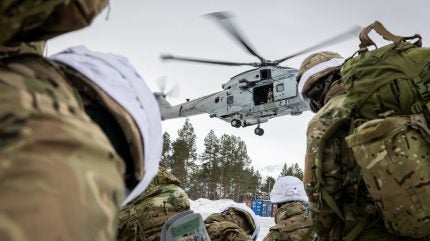
The British Army will implement a new vision for training its soldiers, known as the ‘Land Training System’ (LTS). It aims to cultivate the sub-unit level with a wide range of skills and competencies in a combined arms environment.
LTS is a programme partitioned into three development phases: Tradewind, Cyclone and Storm.

Discover B2B Marketing That Performs
Combine business intelligence and editorial excellence to reach engaged professionals across 36 leading media platforms.
Tradewind will hone the skills and competencies of troops, with the aim of making training more self-sustaining; Cyclone involves building teams in which a sub-unit trains together (in a 10-week timeframe every year) to master individual and collective skills; while Storm constitutes the scale and mass of 21st century fighting.
Ultimately, the new LTS will ensure that required skills and competiencies get to where they need to be at the pace of relevance. Whereas, the Army’s existing model is inefficient: it consists of more than a thousand courses after which it would take a soldier 17 years to be fully qualified. Meanwhile, LTS will remedy these siloed training courses that have hitherto limited force quality.
Furthermore, LTS must overcome the challenge of introducing considerable cultural change. Militaries often operate on the longstanding presumption in which higher ranks suggest greater competencies.
The Army aims to ‘cyclone’ 70% of its personnel by next year; and by 2027, the service will have fewer courses and more blended learning.

US Tariffs are shifting - will you react or anticipate?
Don’t let policy changes catch you off guard. Stay proactive with real-time data and expert analysis.
By GlobalDataExporting British Army training to Nato allies
Interoperability continues to play an important part in military operations, and this extends to how closely all 32 Nato allies train.
As the British Army’s training looks to make an ambitious development with LTS, defence industry players have voiced concern that Nato is not defining standards in this area.
In the same way, the US Department of Defense issues many Foreign Military Sale agreements, providing its own unique form of training systems to other countries.
An apprent lack of standardisation continues to persist in this area, which will prompt Nato to pick up the pace with delivering regulations of its own on training across the military alliance.
In turn, this also presses Nato partners and allies to ensure greater modularity and open architecture systems to offer compatibility with a range of different technologies and systems.



